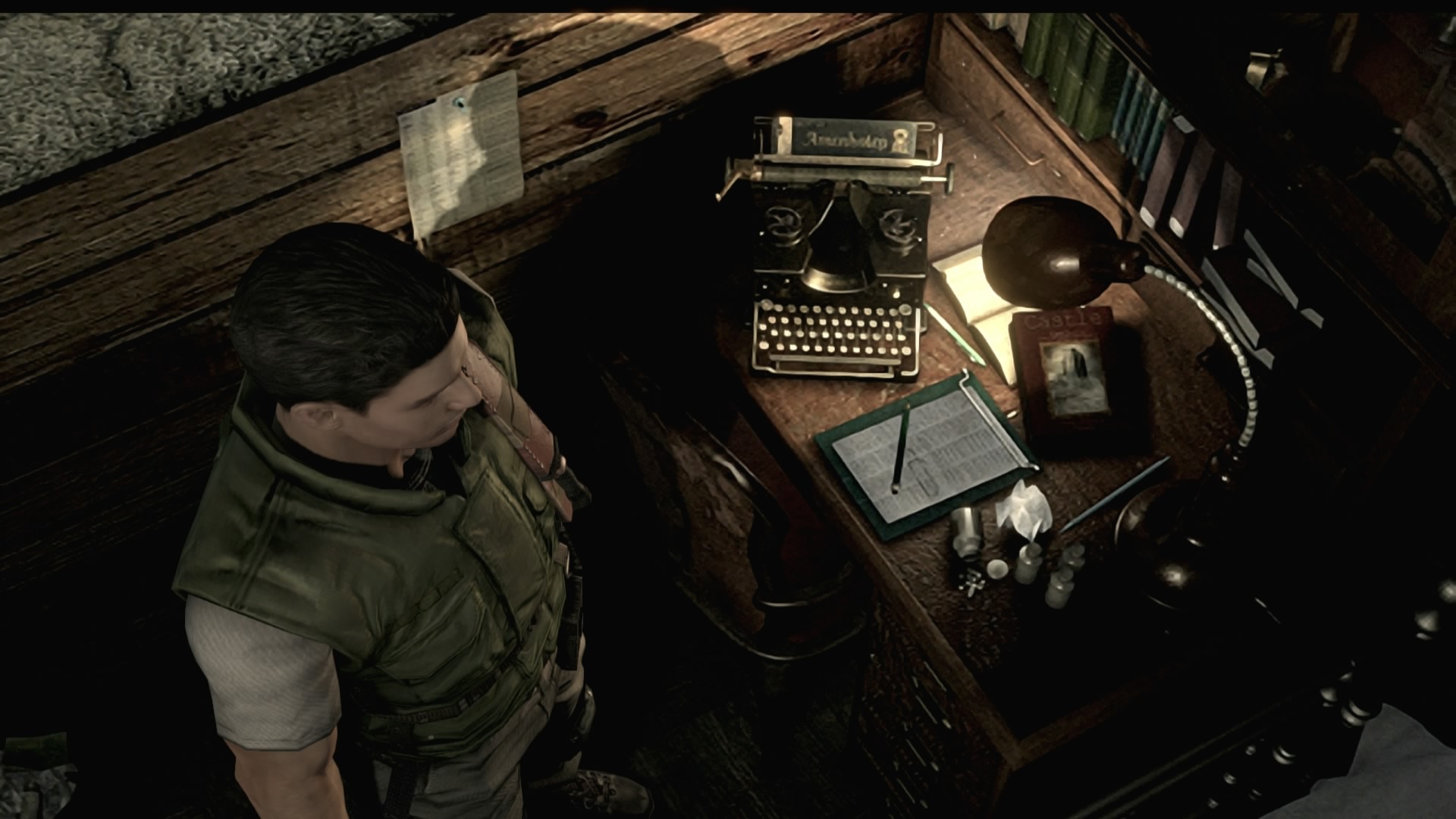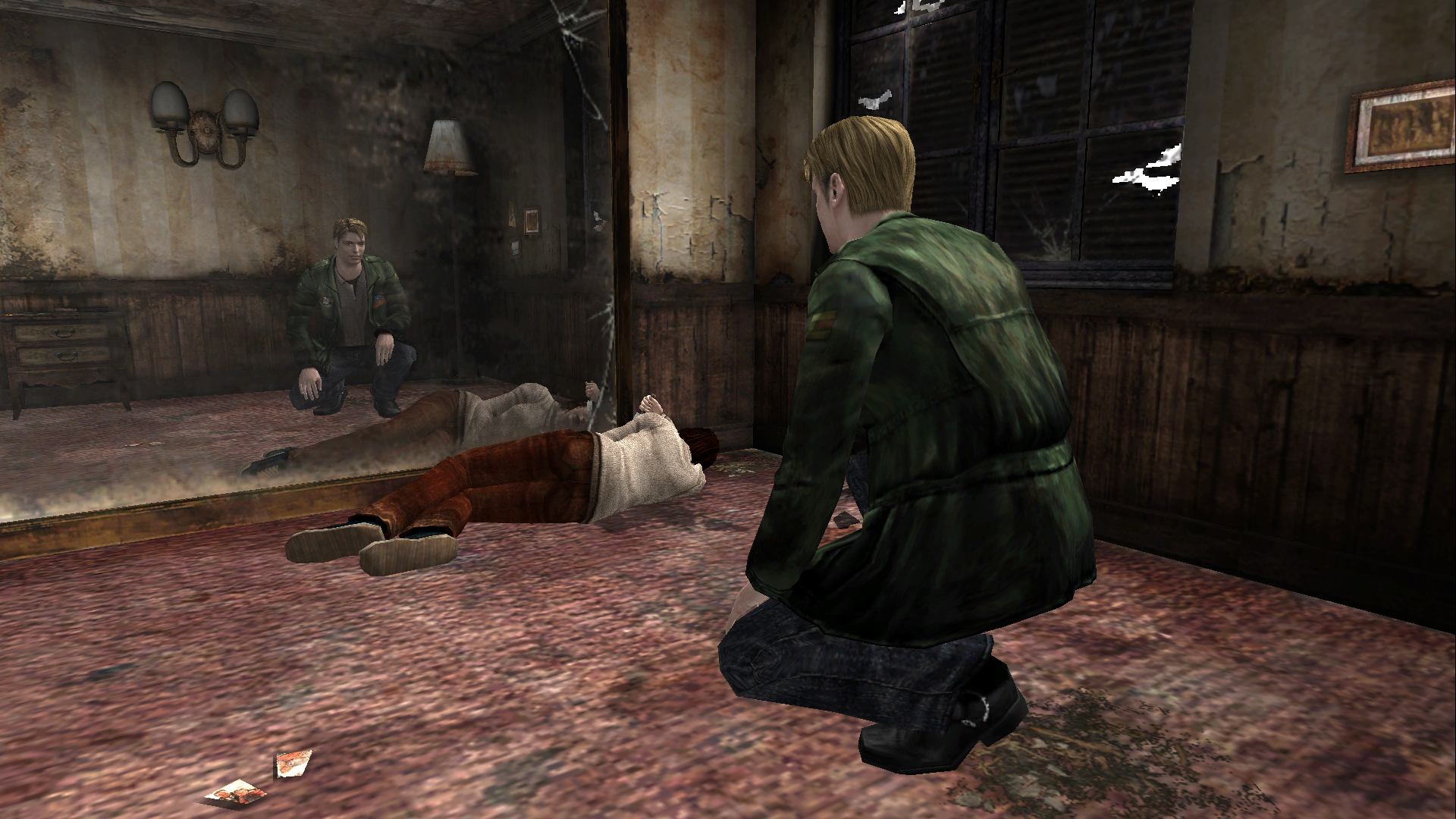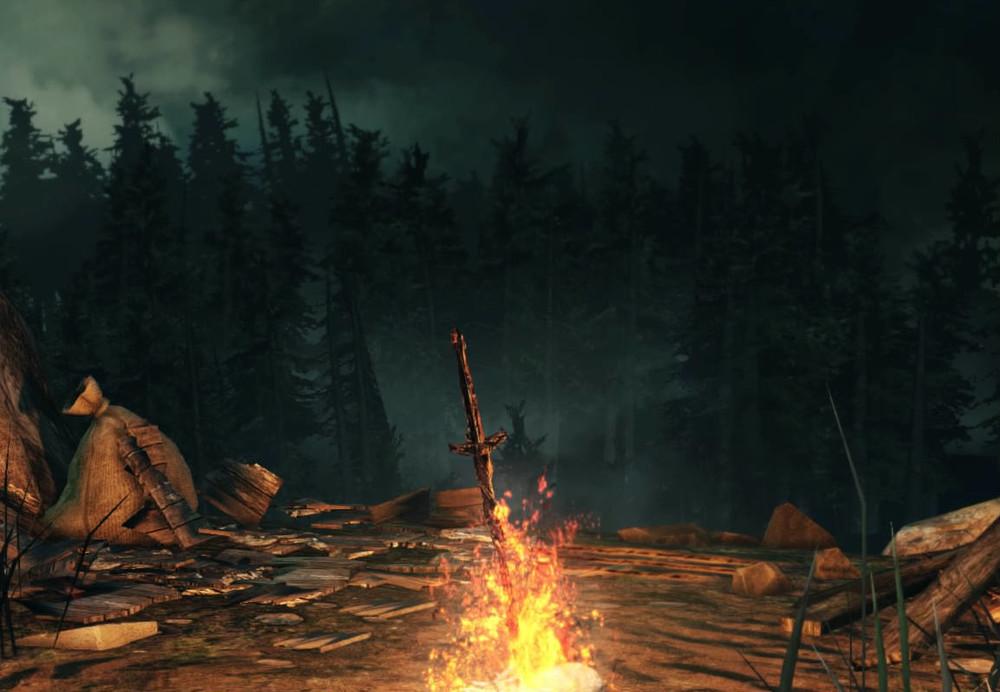Why I love traditional save points
Save or be saved.


In Why I Love, PC Gamer writers pick an aspect of PC gaming that they love and write about why it's brilliant. This week Joe recalls old school save systems.
I enter the apartment and close the door at my back. "Oh... it's you," Angela Orosco says calmly. A woman wearing a cream roll neck sweater and red trousers lies flat out on her side before me. Facing a mirrored cupboard, she grips a kitchen knife above her head. A gentle piano melody plays in the background. "Yeah… I'm James," my character says, as if unphased by this unorthodox meeting.
The conversation lasts forever. Angela is unhinged, she seems confused and is often incoherent—but against the twisted aberrations that wander the hallways of this rundown apartment block, and the fact I'm chasing the shadow of my deceased wife, I'm not even sure what that means. Angela eventually leaves, I slip back into the corridor and take down another mannequin. My status bar blinks red, I'm on my way out. I fumble forward, I check and uncheck my map, I try jammed door after jammed door.
And then… is that? It is. A red, wall-hung save point. Thank Christ for that. Now, where the hell can I find a health tonic?

When I first played Silent Hill 2 in the early 2000s, it wasn't James Sunderland's harrowing tale of love and loss and self-reflection that terrified me most; nor was it Pyramid Head and the wealth of grotesque adversaries that stalked the haphazard protagonist's expedition through Toluca Prison, the Lakeview Hotel and the Blue Creek Apartments—it was locating the next save point without meeting my maker. Sure, it was all of the above that accentuated this fear—not to mention our James' clumsy pedestrian fighting prowess—but the sense of dread that fuelled the uncertainty of reaching the next checkpoint alive galvanised Silent Hill 2's horror in my eyes.
Around that time I'd felt similar anxiety guiding a limping Leon Kennedy around the Raccoon Police Department HQ with not one first aid spray nor ink ribbon to my name. I became so obsessed with keeping Solid Snake's progress up to date in the original Metal Gear Solid that I felt more attached to Mei Ling than I did Meryl and Otacon combined; and I forced Chris Redfield to suffer a similar fate when I returned to the Spencer Mansion via the Resident Evil Remake last year.
I'm hardly complaining—Lara Croft's glowing purple save crystals marked moments of great achievement during my first playthrough of Tomb Raider, and I've rarely slept as soundly as I have in JRPG inns over the years.
Tangible save points are today few and far between, yet they're responsible for so many of my favourite outstanding gaming memories. Be it besting seemingly unconquerable bosses in classic Final Fantasy games, or returning to my Hollywood Hills pad in GTA 5—the traditional save point stands as a bastion of triumph, a beacon of hope and a reminder that: yes, you did overcome that to get here. Taking a minute or two to overwrite your previous save is the temporary respite you deserve.
Keep up to date with the most important stories and the best deals, as picked by the PC Gamer team.

Arguably the greatest save point in modern gaming history is the Dark Souls bonfire. On the off-chance you're not aware, in Dark Souls souls are farmed from fallen enemies and act as the currency that allows for character progression. Levelling up can only be done at a bonfire, however once killed you lose whatever souls you were carrying prior to your demise. These can be redeemed in the immediate next life, but this means trekking from the last bonfire at which you rested to wherever you were struck down, marked by a pool of your previous incarnation's blood. If you die again before recovering said souls at said bloodstain, they're gone forever.
Against games which incorporate auto-save systems and redundant respawns, this probably seems harsh and that's because for the most part it is. But like the early Silent Hills, Resident Evils, Tomb Raiders, and Final Fantasies et al it also marks a challenge. From the slivers Capcom has teased of its incoming Resident Evil 7, the manual save system appears to be making a return by way of voice recorders. I'll be delighted if it does, because it'll go a ways to reintroducing the degree of dread contemporary horror outings have failed to instil in recent years.
To this day Silent Hill 2 stands as one of my all-time favourite videogames. As I've grown older I've learned to appreciate the subtleties of its story, yet I couldn't have done so without being so terrified by its more obvious horrors as I was in my formative years. With that I realise that I probably could've done more to save Angela Orosco, but I was too busy trying to save myself.

